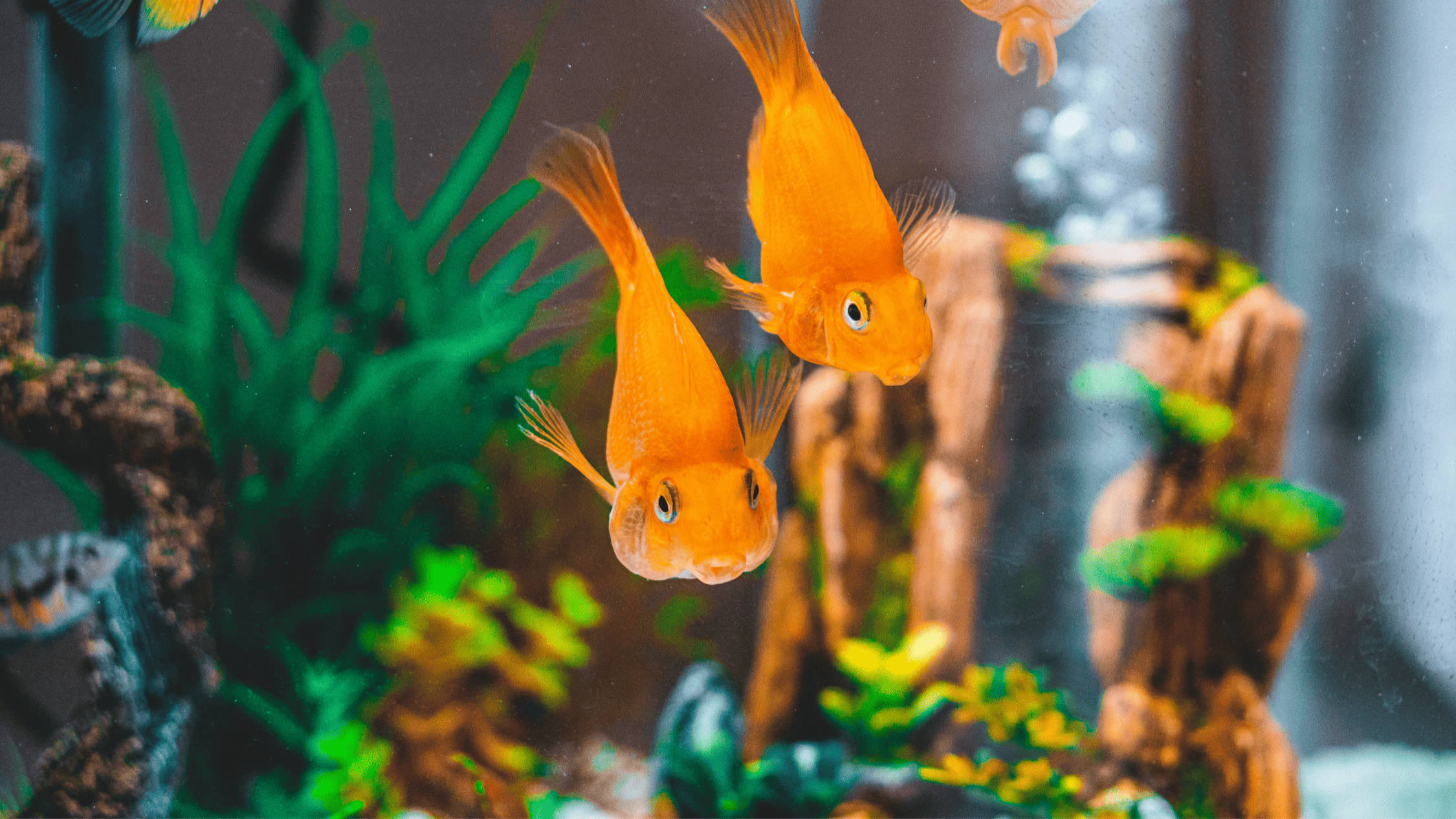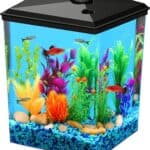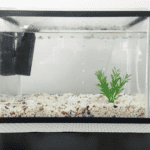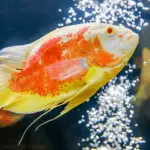Fish tanks offer a serene, beautiful ambiance to your home. But what happens when they emit an uninviting, off-putting smell? The reason your fish tank smells could range from natural biological processes to neglected maintenance. This article seeks to guide you through understanding why your fish tank might be smelling and how you can remedy this issue.
The Biological Battle Unseen: Understanding The Cycle
A fish tank, essentially, is a miniature ecosystem. This self-contained universe operates via the nitrogen cycle, an intricate dance between fish, food, bacteria, and water.
Imagine it as a bustling city. The fish are the citizens, their waste, uneaten food, and decaying plant matter are the garbage, and the bacteria are the clean-up crew. If there’s too much garbage and the crew can’t keep up, the city starts to stink.
Behind The Odor: Common Causes
Several culprits can lead your fish tank to emit an unpleasant smell. Some of the most common are:
- Excess Waste: Overfeeding your fish can lead to an accumulation of decaying organic matter. It’s like leaving leftover food in your kitchen trash can for too long – eventually, it will start to stink.
- Poor Filtration: If your filter isn’t performing efficiently, it may not be removing enough waste products. This situation is akin to a garbage truck missing its scheduled pick-up.
- Algae Overgrowth: Algae is like the weeds in a garden – when left unchecked, they can overgrow and produce a musty odor.
- Dead Fish or Plants: A dead fish or plant decaying in your tank can emit a foul smell, much like a forgotten apple rotting at the bottom of a fruit bowl.
The Role of Bacteria: Friends or Foes?
In our fish tank city, bacteria are the unsung heroes, working around the clock to break down waste. They act like dedicated recyclers, turning harmful substances into safer ones.
But like all good things, balance is key. If harmful bacteria outweigh beneficial bacteria, it can cause your tank to smell. This scenario can be likened to a community where the crime rate has overtaken the efforts of the police force.
Illness and Infections: Unseen Causes
Sometimes, the smell could indicate a disease or infection in your fish tank. Think of it like a warning siren alerting you to a potential problem.
Pathogenic bacteria can cause infections in your fish, leading to unpleasant smells. If you notice any changes in your fish’s behavior or appearance along with the smell, it may be time to seek help from a fish health professional.
The Influence of Water: pH and Hardness
Just like how the atmosphere impacts life on earth, the water’s pH and hardness can significantly influence your fish tank’s overall health.
An unbalanced pH or high hardness levels can cause stress to your fish and influence bacteria growth, leading to a smelly tank. It’s akin to trying to breathe in a heavily polluted city—eventually, something’s going to feel off.
The Material Factor: Substrates and Decorations
Substrates and decorations in your tank aren’t just for aesthetics—they can also impact your tank’s smell. Certain substrates can alter your tank’s pH, promoting algae growth or unwanted bacterial bloom.
It’s similar to choosing furniture for your home. Some materials may look great but could harbor more dust or allergens, leading to a musty smell over time.

The Hidden Cause: Overstocking
Overstocking your tank is like cramming too many people into a small apartment—it gets messy quickly. More fish means more waste, which can overload your bacteria and filtration system and lead to a foul smell.
Remember, it’s better to have a spacious tank with fewer fish than to overpopulate your tank. Consider it a lesson in social distancing from our aquatic friends.
No More Guessing: How to Detect The Problem
Now that we know the possible culprits, how do we catch them red-handed? Let’s follow a detective’s footsteps. Here are the signs to look for:
| Sign | Possible Cause |
|---|---|
| Cloudy or discolored water | Poor filtration or excess waste |
| Visible algae growth | Algae overgrowth |
| Fish seem listless or unwell | Poor water quality or dead fish |
Cleaning Up The Stink: Effective Solutions
Fear not, for every problem, there’s a solution. Here are the best ways to keep your fish tank smelling fresh:
- Regular Cleaning: Just as you wouldn’t let your house become a mess, regular cleaning of your fish tank is essential. Vacuum the substrate, scrub off algae, and change about 25% of the water every two weeks.
- Feed Wisely: Overfeeding is a leading cause of tank smell. Ensure you’re providing just enough food that your fish can eat in a few minutes.
- Maintain Your Filter: A properly functioning filter is crucial. Clean it regularly and replace the media as needed.
- Monitor Tank Inhabitants: Keep an eye on your fish and plants. Remove any dead or dying specimens promptly to avoid them decomposing in the tank.
In Conclusion
Your fish tank should not smell if you maintain it properly. By understanding the processes within the tank and keeping a vigilant eye on potential issues, you can ensure that your aquatic ecosystem remains odor-free. Remember, a smelly fish tank isn’t just a nuisance for your nose, it’s also a sign of imbalance that could harm your fish. So, don’t merely hold your breath and hope it passes, take action to clean up the stink!

Frequently Asked Questions
Why does my fish tank smell even after cleaning?
A fish tank might still smell after cleaning due to several reasons. You might have missed some debris or waste during cleaning, there might be a lingering issue with water quality, or the smell could be coming from an overlooked dead fish or plant. It’s also possible that your cleaning routine disrupted beneficial bacteria, leading to a temporary spike in waste products.
How often should I clean my fish tank?
Typically, a thorough cleaning should be done every two weeks. This includes vacuuming the substrate, cleaning the glass, and replacing about 25% of the water. However, the exact frequency may vary based on your tank’s size, the number of fish, and the efficiency of your filtration system.
What should I do if my fish are acting differently?
Changes in your fish’s behavior could be a sign of stress or illness. If you notice your fish acting listlessly, hiding, or showing signs of physical distress, it’s time to check your water quality, look for signs of disease, and possibly consult a fish health professional.
Can I prevent my fish tank from smelling in the first place?
Yes, preventive measures are always better than finding a cure. Regular cleaning, careful feeding, maintaining a balanced pH and hardness level, proper stocking, and regular monitoring can keep your fish tank from developing an unpleasant smell.
What kind of filter is best to prevent my fish tank from smelling?
A high-quality, efficient filter suitable for your tank’s size is crucial. There are three types of filtration: mechanical, biological, and chemical. A good filter should provide all three. However, remember that even the best filter cannot substitute for regular maintenance.
Is it normal for a fish tank to smell a little?
A healthy fish tank might have a mild, earthy smell, similar to a clean pond or lake. However, any strong, foul, or unnatural smell is a sign that something is out of balance. This scent could be reminiscent of rotten eggs, mold, or something else unpleasant.






